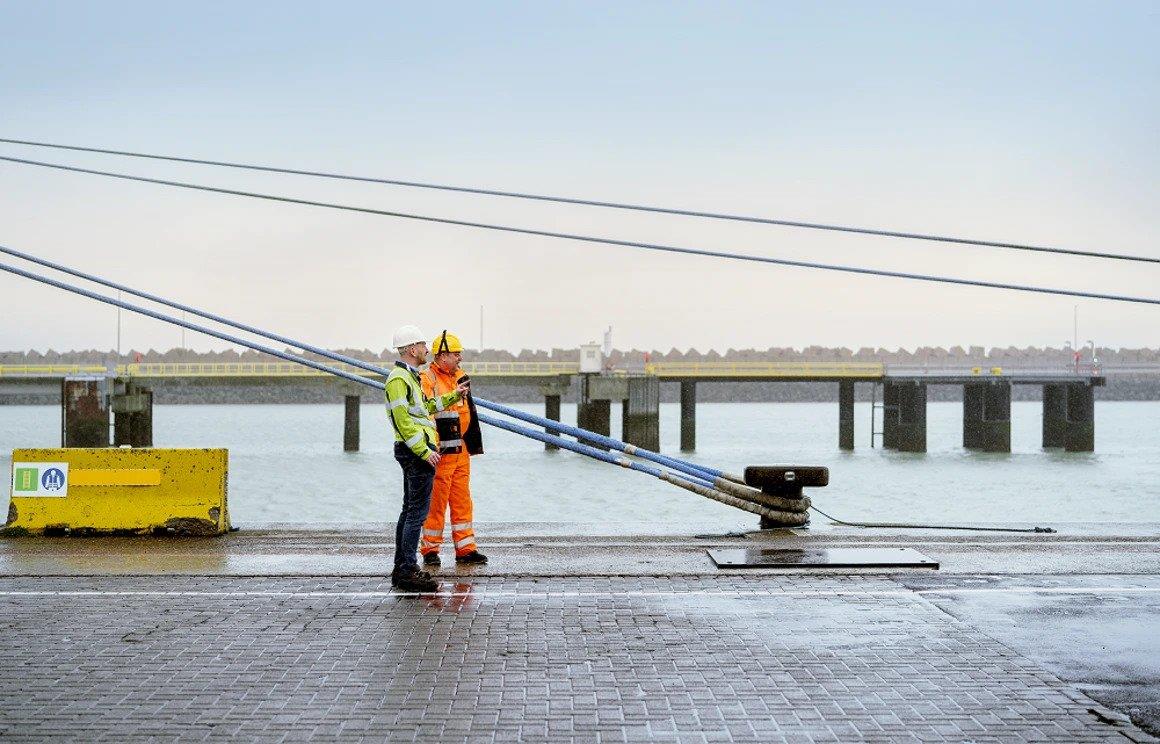The merger of the ports of Antwerp and Zeebrugge is seen to create Europe's largest export port — becoming the Port of Antwerp-Bruges.
The two cities signed the shareholders' agreement of the unified port company at the extraordinary general meeting held on April 22.

Large-scale but sustainable ambitions
In February 2021, the City of Antwerp and the City of Bruges announced the launch of the merger process for their respective ports.
Following the signing of the shareholders' agreement of the unified port company on April 22, the ports of Antwerp and Zeebrugge will operate under one name going forward: Port of Antwerp-Bruges.
"Today, this unified port provides no fewer than 74,000 direct and 90,000 indirect jobs and with an added value of nearly €21 billion or 4.5% of Belgian GDP, is by far the largest economic engine in our country," the announcement said.
"Europe's largest export port, the Port of Antwerp-Bruges will also be the largest throughput port for vehicles, the largest integrated chemical cluster, and one of the leading container ports in Europe," it added.
Boost position in the supply chain
The unified port plans to further strengthen its position in the international logistics chain, take a leading role in the energy and digital transition, and at the same time create sustainable added value for society as a whole.
"In the current geopolitical and macroeconomic context, the merger is a golden opportunity to put the Antwerp and Zeebrugge port sites, and by extension Flanders, in an even stronger position on the world map. Port of Antwerp-Bruges will capitalize on the strengths of both port locations and focus its strategy on containers, breakbulk, RoRo traffic, and chemicals," it added, noting that more than ever, the Port of Antwerp-Bruges will play a crucial role in major freight flows and reinforce its position as one of the main gateways to Europe.
"The unified port has also become Europe's largest export port - with 147 million tons/year - making it a global heavyweight," the announcement continued.
As a leading container port by tonnage - with 159 million tons/year - the Port of Antwerp-Bruges aims to meet the need for container capacity due to global growth and recent developments in the international logistics chain.
In parallel with the implementation of the Extra Container Capacity Antwerp (ECA) project, the Port of Antwerp-Bruges is also working on a 'Container Plan 22-30' to safeguard its competitive position.
Elsewhere, the Port of Antwerp-Bruges continues to invest in strategic infrastructure including the Europa Terminal in Antwerp, as well as the New Lock and the Maritime Logistics Zone in Zeebrugge.
It said that by focusing on bolstering interconnectivity between the Antwerp and Bruges sites and achieving economies of scale in the area of digitisation, the unified port will contribute to the efficiency, reliability, and sustainability of the logistics chain.
"In short, Port of Antwerp-Bruges has all of the tools at its disposal to play an increasingly important role on the global logistics stage," it said.
The ports noted that Antwerp and Zeebrugge are "largely complementary" — Antwerp has strengths in the handling and storage of containers, breakbulk and chemical products, while Zeebrugge is a major port for RoRo traffic, container handling, and the transshipment of liquid natural gas.
Pioneer in hydrogen and CO2 reuse
Port of Antwerp-Bruges also intends to anchor its position as a green energy hub. It noted that the unified port will continue and extend its pioneering project for the capture, storage, and reuse of CO2.
Via Antwerp@C, the first 2.5 million tons of CO2 will be captured from industry at the port by 2025.
"The combination of Antwerp's position as the second-largest petrochemical cluster in the world and the coastal position of Zeebrugge provides a unique opportunity to take a leading role in the roll-out of the hydrogen economy," the ports added.
By 2028, Port of Antwerp-Bruges plans to have the capacity to receive the first green hydrogen molecules on its platform.
"The unified port is not only the economic engine of Flanders, but together, the ports of Antwerp and Zeebrugge will also form the largest export port, largest throughput port for vehicles, and the leading chemical hub in Europe! At the same time, Port of Antwerp-Bruges has major ambitions to become the energy gateway to Europe as a 'green port'," said Annick De Ridder, vice-mayor of the City of Antwerp and President of the board of directors of Port of Antwerp-Bruges.
Dirk De fauw, mayor of the City of Bruges and vice-president of Port of Antwerp-Bruges, for his part said the merger will lead to sustainable growth in economic activity and jobs in both sites, and boost Flanders' international reputation around the world.



